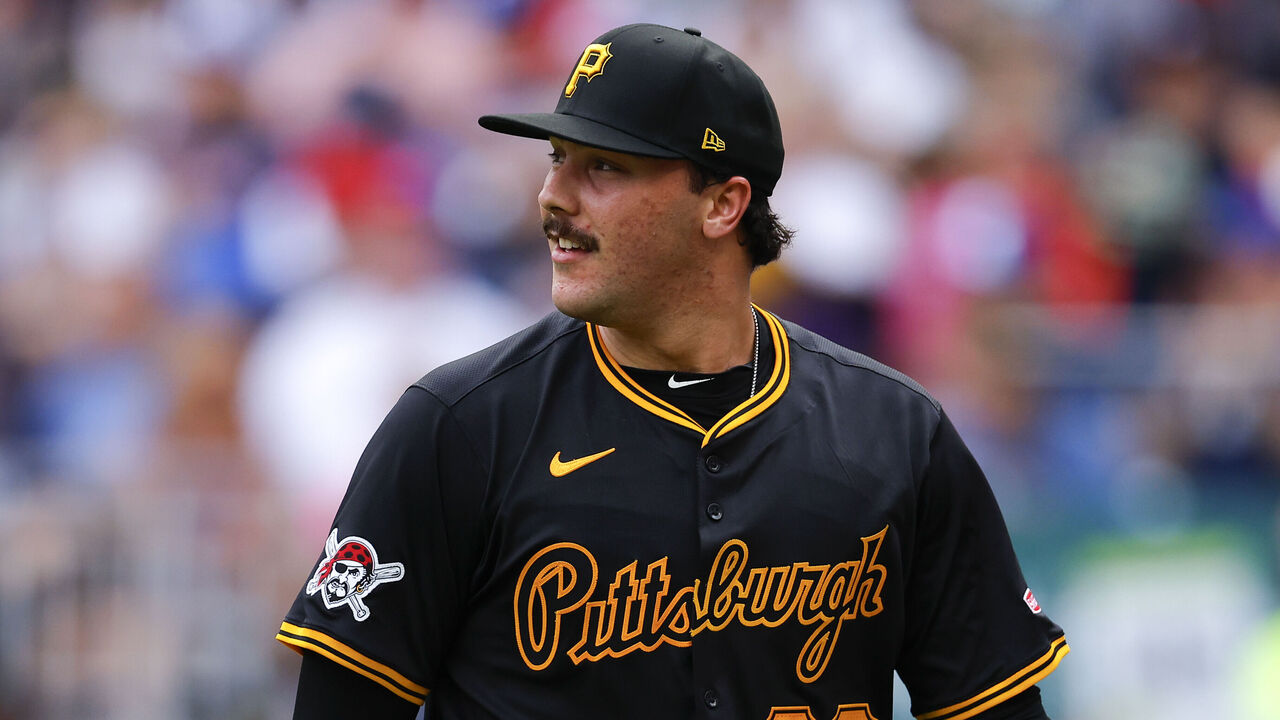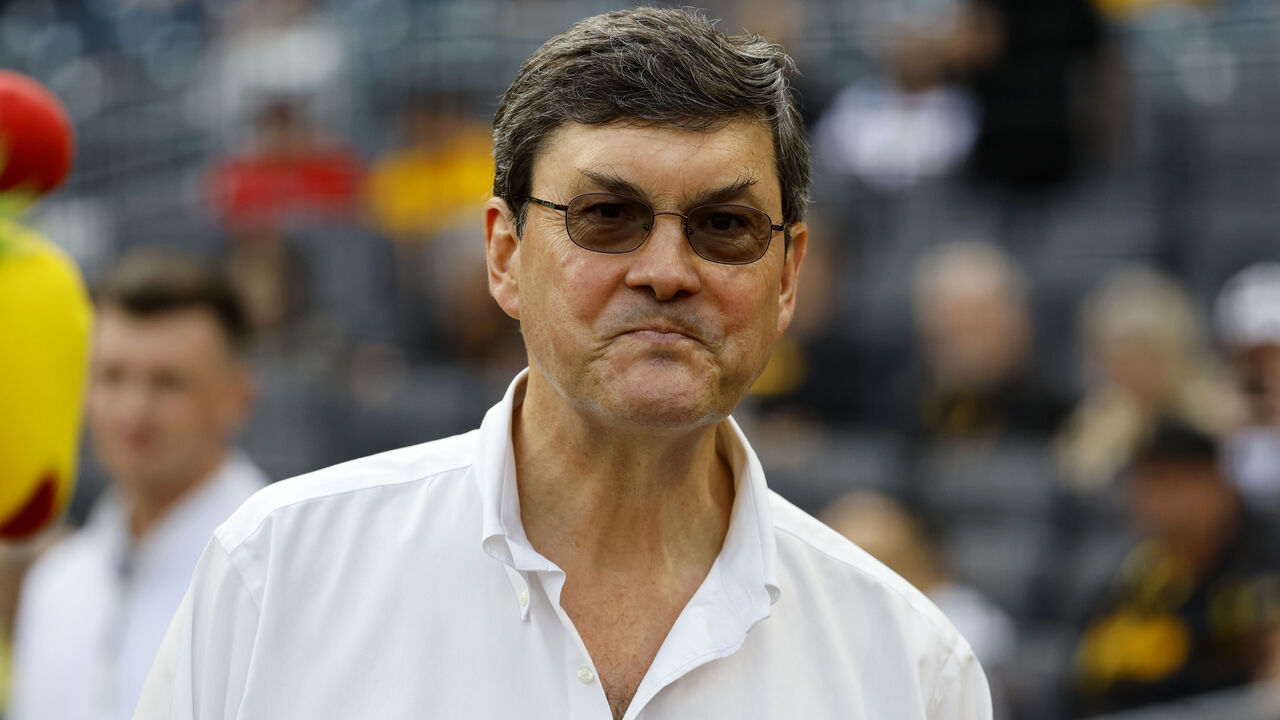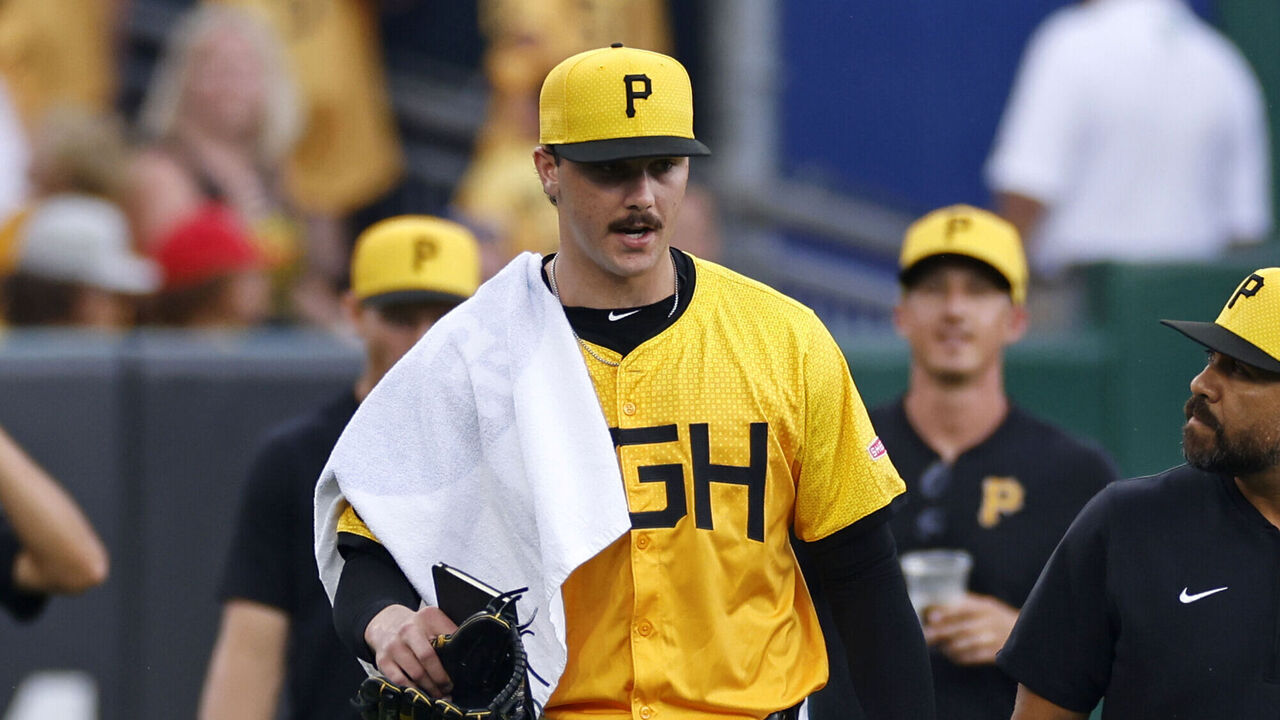Skenes' rookie award traps Pirates in uncomfortable situation
There was an immediate shift in sentiment among many Pittsburgh Pirates fans when Paul Skenes was named the NL Rookie of the Year on Monday.
On social media, long-suffering fans pivoted from, "Cool, our player won an award!" to "Wait a second, we just lost a year of club control over our best pitcher!"
Many Pirates fans likely learned Monday night about new incentives in the collective bargaining agreement designed to reduce service-time suppression - a practice long employed by the Pirates and other clubs.
The new provision allows for players who finish in the top two of Rookie of the Year voting to earn a full year of service time if they didn't already qualify. That matters because players need six full years of service to become free agents and typically three years to become eligible for arbitration.
Skenes spent 142 days on the major-league roster, short of the 172 needed to qualify for a full year of service time. The award gives him the bump.
Skenes now projects to enter the free-agent market after the 2029 season instead of after the 2030 campaign, as would have been the case under previous CBAs.

The intent of the new CBA provision is good: reduce service-time suppression, reward excellent young players, and incentivize clubs to promote top young talent to the majors sooner (more on that in a moment).
But the new rule also adds a little more divide to the already huge gulf between large- and small-market clubs. For the first time in history, service time to reach free agency can be altered in the players' favor.
Pittsburgh fans are already counting down the days remaining because they know Pirates management under owner Bob Nutting could trade Skenes before his club control expires, something the team did with Gerrit Cole following the 2017 season. Small-market baseball fans are well aware of the expiration date on star players' time with their clubs. There are no mechanisms forcing owners to spend to a salary floor, and dramatic differences in local revenues typically determine which teams spend on the open market.

As for the club incentive in relation to the new CBA provision, it can be debated as to whether the Pirates mishandled the situation.
If a player wins Rookie of the Year or finishes in the top three of MVP or Cy Young voting prior to reaching arbitration, a team can receive a draft pick awarded following the first round.
The MLBPA wants promising young players to get to free agency sooner, and the union worked with MLB on creating a carrot to accomplish that.
But the player must be ranked as a top-100 prospect by two of three rankings lists - Baseball America, ESPN, or MLB Pipeline - and have been on the MLB roster for at least 172 days during their rookie season to qualify.
Because Skenes didn't debut until early May, the Pirates didn't qualify for that reward. The Arizona Diamondbacks and Baltimore Orioles earned the bonus in 2023 when Corbin Carroll and Gunnar Henderson won their respective league's Rookie of the Year award.
On a pure talent basis, there was no reason for Skenes not to be on the Opening Day roster.
He was perhaps the Pirates' best pitching option the day he signed in 2023 after being the first overall pick out of LSU, and Pittsburgh's starting staff was thin this past spring.
But it's tricky with young pitchers.
Position-player prospects aren't subject to the same workload and injury concerns of the modern game as young pitchers. That makes it easier for clubs to have confidence in adding them to early-season rosters, like with Carroll and Henderson.
The Pirates wanted to manage Skenes' innings workload in 2024, and Skenes said he benefited from spending 27 innings in Triple-A early this season. Whether they could have managed his workload at the major-league level can be debated.
If the Pirates had been mostly focused on trying to limit his service time, they would have promoted him later in the season after Super Two eligibility had passed. Skenes' 142 days in the majors in 2024 would have made him Super Two eligible regardless of Rookie of the Year results.
One rival executive said there "would be pressure" with his club to make sure a likely ROY candidate who was a top prospect, like Skenes, would be eligible for the compensation draft pick.

Whatever the case, the delayed debut cost the Pirates a draft pick.
The Skenes situation raises this question: Could teams delay the arrival of young arms to ensure they're ready for a full workload once they're added to an Opening Day roster so the club can ensure it qualifies for draft-pick compensation? Or are young arms so fragile in the modern era that teams wouldn't want to risk wasting pitches in the minors if the arm is MLB-ready, even on an innings limit? It will be worth monitoring whether clubs change their behavior.
As Pirates fans digested all this Monday night, as the looming threat of losing Skenes accelerated by a year, some wondered why the CBA contained a service-time bonus that's decided by a sportswriters' vote.
The decision was collectively bargained between players and owners in 2022. An alternative idea of relying on WAR measurements to determine qualifying status was discussed, but the Rookie of the Year vote was ultimately decided as the arbiter.
Monday's award voting is ultimately a big win for Skenes and young stars like him, a victory for the MLBPA, and the cause of mixed feelings for some Pittsburgh fans.
Keeping Skenes in Pittsburgh long term would require a different owner or a much different CBA. Neither one of those scenarios is likely. The big takeaway? Enjoy Skenes while you can, Pittsburgh.
Travis Sawchik is theScore's senior baseball writer.
HEADLINES
- Cole: Salary cap, floor would be like players subsidizing owners' issues
- MLB fans carping for salary limits need to learn from the NBA
- Yankees amend facial hair policy to allow well-groomed beards
- MLB Power Rankings: Taking stock entering spring training
- Report: Brewers agree to minor-league deal with Margot